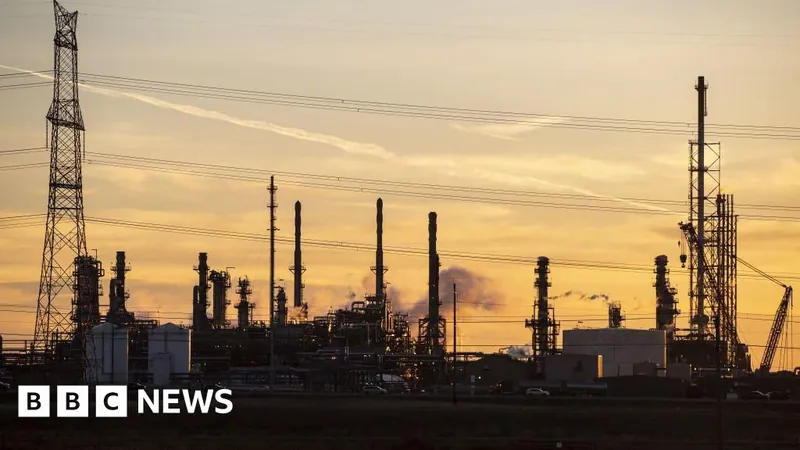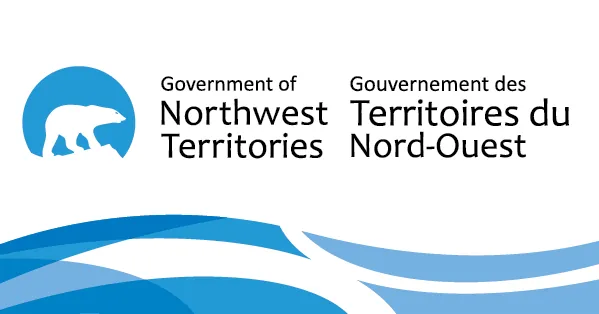
Alberta's Economy on Edge: Can Trump’s Tariff Threat Impact the Future of Canadian Oil?
2024-11-29
Author: Liam
Introduction
In the heart of Alberta, one of Canada’s oil-rich provinces, a palpable tension is simmering in response to President-elect Donald Trump’s alarming announcement of a potential 25% tariff on Canadian goods. This looming threat has sent shockwaves through the region, igniting fears of substantial economic ramifications that could reverberate across Canada and beyond.
Economic Impact of Tariffs
According to industry experts and politicians, such a steep tariff would not only devastate Alberta’s economy but could also lead to higher prices for American consumers. Dennis McConaghy, a former energy executive from Alberta, emphasized the dire situation, stating, "Canada has no choice in this. It has to find an accommodation with Trump." His sentiments encapsulate the prevailing anxiety among many in the oil sector, who worry about the immediate and long-term effects of these tariffs.
Warnings from Industry Leaders
The Canadian Association of Petroleum Producers, led by CEO Lisa Baiton, has warned that the proposed tariffs would likely compel Canada to scale back its oil production. This reduction could trigger widespread job losses, particularly in Alberta—a province that plays a crucial role in supporting other less prosperous Canadian regions through fiscal transfers. Economically vulnerable provinces rely heavily on the revenues generated from Alberta's oil, making the stakes even higher.
Trade Relationships and Economic Stability
The specter of a tariff could lead to a further devaluation of the Canadian dollar, which is already facing its own challenges due to existing economic pressures. With approximately 80% of Canada’s trade tied to the United States—and the majority comprising hydrocarbons—Canada's economic stability is inextricably linked to its southern neighbor.
U.S. Fuel Manufacturers' Concerns
Moreover, U.S. fuel manufacturers have expressed their opposition to including Canadian oil in Trump’s tariff strategy. The American Fuel and Petrochemical Manufacturers (AFPM) cautioned that crude oil is essential to U.S. refineries, likening its importance to flour in baking. A significant increase in the cost of these essential imports could lead to soaring fuel prices for American consumers. Some estimates suggest that states in the Midwest, heavily reliant on Canadian crude, could experience gas price increases of up to 75 cents per gallon.
Potential Effects on Gas Prices
Trump’s earlier promises to cut gasoline prices to below $2 per gallon are now under threat. As of late November, consumers face prices averaging around $3 a gallon—higher costs that could undermine Trump's commitments to energy affordability and independence. Complicating matters, some regions of the U.S., particularly coastal states and areas lacking robust pipeline infrastructure, depend on Canadian oil to meet their energy needs.
Broader Implications for U.S. Energy Security
What's more, the possibility of tariffs raises broader concerns about the implications for U.S. energy security. The AFPM warned that any disruption in the supply of Canadian crude could compel the U.S. to seek overseas alternatives, which could be less reliable.
Uncertain Future
Experts note that the full impact of Trump’s tariff threats remains unpredictable. Historically, Trump has utilized such announcements as negotiation tactics, leveraging them to foster cooperation on other contentious issues like border security. His approach suggests that these tariffs may remain conditional, meant to incentivize both Canada and Mexico to address shared concerns over unlawful migration and drug trafficking.
Conclusion
As Canada watches closely, the outcome of this situation could reshape the intricacies of North American trade and energy markets, and ultimately test the resilience of Alberta's economy amid these turbulent times.









 Brasil (PT)
Brasil (PT)
 Canada (EN)
Canada (EN)
 Chile (ES)
Chile (ES)
 España (ES)
España (ES)
 France (FR)
France (FR)
 Hong Kong (EN)
Hong Kong (EN)
 Italia (IT)
Italia (IT)
 日本 (JA)
日本 (JA)
 Magyarország (HU)
Magyarország (HU)
 Norge (NO)
Norge (NO)
 Polska (PL)
Polska (PL)
 Schweiz (DE)
Schweiz (DE)
 Singapore (EN)
Singapore (EN)
 Sverige (SV)
Sverige (SV)
 Suomi (FI)
Suomi (FI)
 Türkiye (TR)
Türkiye (TR)